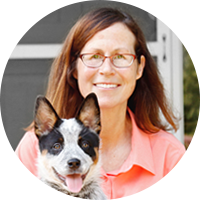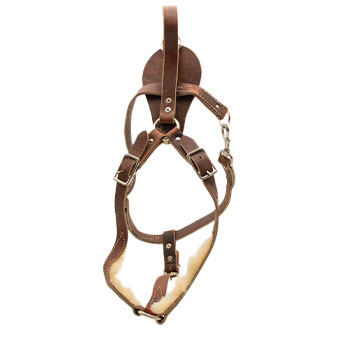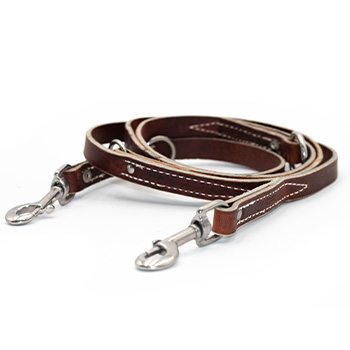May 17, 2011
What is your opinion of an officer buying a puppy and trying to raise it with the purpose of ending up with a police service dog?
Full Question:
What is your opinion of an officer buying a puppy and trying to raise it with the purpose of ending up with a police service dog? 
 Ed's Answer:
Ed's Answer:
This is a question I am often asked by police officers who want to get into K9 work.
Even though the goal of my breeding program is to breed police service dogs I would be the first person to say that it's not a good idea for an inexperienced officer to buy a puppy that he hopes to raise and work the street with. This is definitely an uphill battle. I may be shooting myself in the foot as a breeder trying to sell puppies but cops need to understand the pit falls of trying to do this.
At least if I explain the problems with trying to do this and they then decide to proceed, there is a better chance of success.
Some of my best friends are K9 handlers, the fact is they are mediocre dog trainers. In my experience less than 2 or 3 % of K9 handlers are really good dog trainers. The key to this opinion is the term "handler." Police K9 Officers are dog handlers and usually not dog trainers. Yes they train basic skills and they train their dogs to be under control, but they do not often take young dogs through the developmental stages. I also admit that I have a higher standard on what my opinion of a dog trainer is. But raising a puppy to become a police service dog requires the skills and patience of someone who is trying to become a dog trainer, not a dog handler.
It's one thing to take a selection tested dog through a 6 to 8 week training program under the guidance of an instructor. It's a totally different thing to take a puppy and try to socialize it and then set the foundation for obedience, tracking and bite development. Raising a puppy with the idea of developing a working dog is almost an art form. Often police instructors do not even have much experience raising puppies.
I have sold puppies to officers who have had over 10 years of experience as K9 handlers. Some of these men have been very successful raising their dogs and getting them on the street, while others had problems developing pups. These were dogs that in my opinion had the genetic ability and drives for this work.
One of the biggest problems I see is the lack of patience to wait for young dogs to grow up and mature. Officers seem to develop a "time table" in their mind. They want the pup ready by a certain age and if a dog is a slow developer and it's maturity does not correspond with that "time table" the officers try and push the envelope. This is when problems develop.
Then there is the possibility of the officer doing everything right and a problem develops that result in the dog not having the temperament or drive to become a service dog. This comes under the category of "shit happens." The officers must be prepared to sell the dog and move on to another dog. This can become very frustrating if you are the unlucky officer to go through 3 pups before you end up with a nice dog.
From a breeders standpoint I am often asked if I guarantee the temperament of my dogs. The answer is a very quick "NO - NEVER!" I back the statement up with the knowledge that I can give a lot of people the best dog I can possibly produce and they will still screw it up. I can not come close to remembering how many times I have seen this happen.
In addition to developing a puppies training and socializing there are also health concerns about raising pups. It would be nice if every pup grew up to become the perfect specimen of a dog but this is a pipe dream. Even though every dog 5 or 6 generations back in a pedigree has good hips, a pup with that pedigree can still develop hip or elbow dysphasia. So doing preliminary x-rays is imperative. But even if they are done at 8 or 10 months, there has been a lot of work and money put into the dog only to be faced with replacing it.
With all of this said, with a little luck buying a pup from a reputable breeder whose bloodlines have the potential to produce service dogs is a much much cheaper than buying a selection tested dog. Often times it's about 20% of the cost. With luck if an officer is prepared to make the effort to do the work during the first 14 to 24 months of a dogs life they can end up with a very nice dog.
Even though the goal of my breeding program is to breed police service dogs I would be the first person to say that it's not a good idea for an inexperienced officer to buy a puppy that he hopes to raise and work the street with. This is definitely an uphill battle. I may be shooting myself in the foot as a breeder trying to sell puppies but cops need to understand the pit falls of trying to do this.
At least if I explain the problems with trying to do this and they then decide to proceed, there is a better chance of success.
Some of my best friends are K9 handlers, the fact is they are mediocre dog trainers. In my experience less than 2 or 3 % of K9 handlers are really good dog trainers. The key to this opinion is the term "handler." Police K9 Officers are dog handlers and usually not dog trainers. Yes they train basic skills and they train their dogs to be under control, but they do not often take young dogs through the developmental stages. I also admit that I have a higher standard on what my opinion of a dog trainer is. But raising a puppy to become a police service dog requires the skills and patience of someone who is trying to become a dog trainer, not a dog handler.
It's one thing to take a selection tested dog through a 6 to 8 week training program under the guidance of an instructor. It's a totally different thing to take a puppy and try to socialize it and then set the foundation for obedience, tracking and bite development. Raising a puppy with the idea of developing a working dog is almost an art form. Often police instructors do not even have much experience raising puppies.
I have sold puppies to officers who have had over 10 years of experience as K9 handlers. Some of these men have been very successful raising their dogs and getting them on the street, while others had problems developing pups. These were dogs that in my opinion had the genetic ability and drives for this work.
One of the biggest problems I see is the lack of patience to wait for young dogs to grow up and mature. Officers seem to develop a "time table" in their mind. They want the pup ready by a certain age and if a dog is a slow developer and it's maturity does not correspond with that "time table" the officers try and push the envelope. This is when problems develop.
Then there is the possibility of the officer doing everything right and a problem develops that result in the dog not having the temperament or drive to become a service dog. This comes under the category of "shit happens." The officers must be prepared to sell the dog and move on to another dog. This can become very frustrating if you are the unlucky officer to go through 3 pups before you end up with a nice dog.
From a breeders standpoint I am often asked if I guarantee the temperament of my dogs. The answer is a very quick "NO - NEVER!" I back the statement up with the knowledge that I can give a lot of people the best dog I can possibly produce and they will still screw it up. I can not come close to remembering how many times I have seen this happen.
In addition to developing a puppies training and socializing there are also health concerns about raising pups. It would be nice if every pup grew up to become the perfect specimen of a dog but this is a pipe dream. Even though every dog 5 or 6 generations back in a pedigree has good hips, a pup with that pedigree can still develop hip or elbow dysphasia. So doing preliminary x-rays is imperative. But even if they are done at 8 or 10 months, there has been a lot of work and money put into the dog only to be faced with replacing it.
With all of this said, with a little luck buying a pup from a reputable breeder whose bloodlines have the potential to produce service dogs is a much much cheaper than buying a selection tested dog. Often times it's about 20% of the cost. With luck if an officer is prepared to make the effort to do the work during the first 14 to 24 months of a dogs life they can end up with a very nice dog.
100% (3 out of 3)
respondents found this answer helpful


Can't find what you're looking for?




